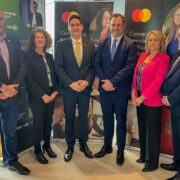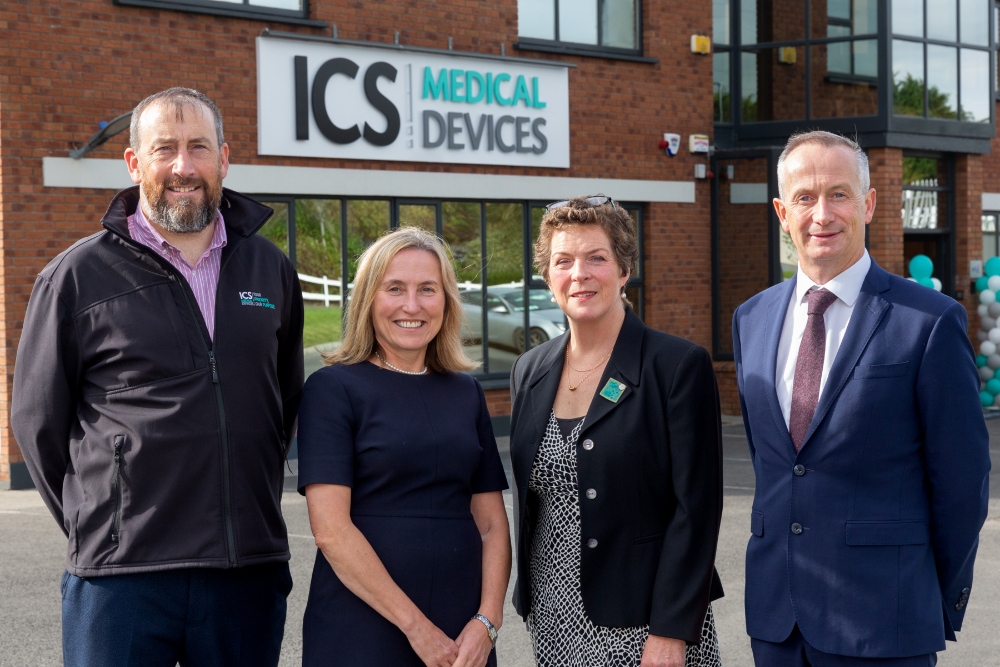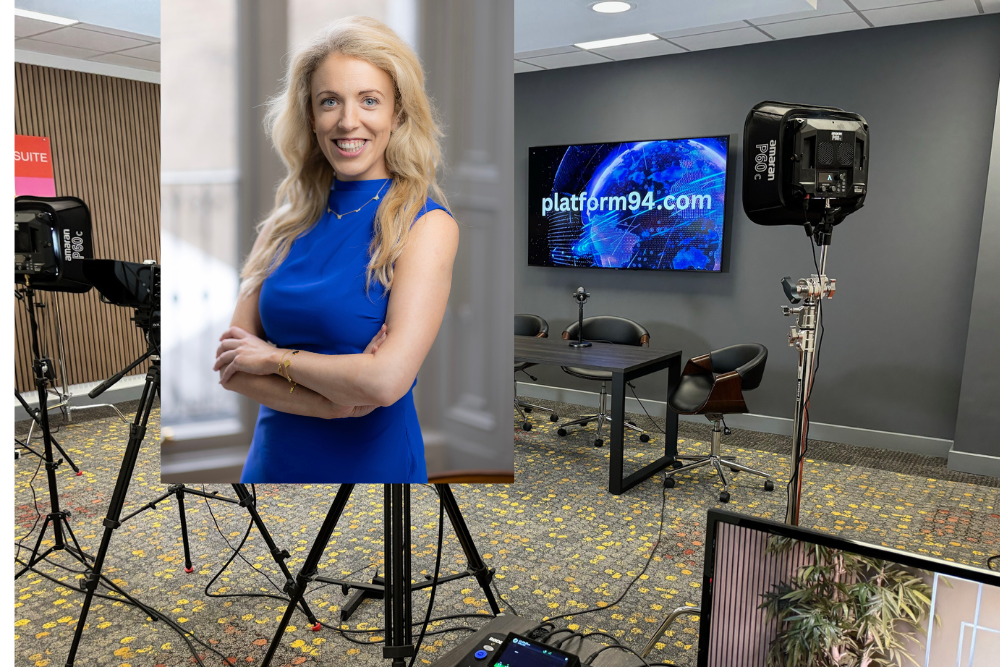John Power, founder and CEO of Galway-based Aerogen, one of Ireland’s largest indigenous medtech firms, talks about his scaling journey and about how he is about to embark on his biggest bet yet, a vital drug that will help prevent fatalities among newborn babies.
It doesn’t get clearer than this how Irish medtech is changing the world. As John Power’s daughter Ciara leads me on a tour of the Galway firm’s headquarters, she relays a poignant example. When the company’s founder’s own grandson was critically unwell recently, the technology he created played a life-saving role. Talk about full circle.
Founded by John Power as Cerus Medical in 1997, Galway-headquartered Aerogen’s acute care aerosol drug delivery devices are used in 75 countries and by more than 20m patients worldwide. Customers include 80pc of hospitals in Ireland and 60pc of the top hospitals in the US.
“We think this will have the biggest impact in neonatal care for 40 years. We’ve funded this all ourselves to the tune of around €70m to to date and we’re now approaching the final trials in America for this”
At the end of 2022, Aerogen’s parent company Stamford Devices Limited Group recorded €119.9m in revenue. This year it is hurtling in the direction of €150m in revenues and is about to embark on a major foray into drug development through its own R&D.
A passion for innovation
The company, which employs more than 500 people in 28 countries, manufacturers its products in Galway and Shannon.
Born in London to Irish emigrants, Power recalls his mother reminding him: “Remember, we are only just visitors here.”
Heeding this advice, the young engineer with a passion for innovation resolved to establish a business in Ireland and so in 1997 the business was founded above a butcher’s shop in Galway.
“I’m an engineer that has always worked in technology and design. I started at 16 as a draughtsman on drawing boards and studied at night for an engineering degree and an MBA. My parents came over to the UK in the 1950s and I grew up in London. After 15 years working in London in the Petrochemical, Aerospace and finally the Robotics and Automation sector I decided to move back to Ireland when I was 30.”
Whilst working in an early stage robotics company Power got his first exposure to entrepreneurship and venture financing. When I first entered the business world I was certain that the people who drove around in flashy cars and with flashy suits in the City of London must be very smart. And then I got to meet lots of them and figured out actually, they are no smarter than the rest of us. I realised as an engineer I could learn business and finance but they couldn’t learn engineering. So it was a real eye-opener going to these meetings and being part of investment pitches and it really fired the urge in me to set up my own business.”
Returning to Ireland Power focused on a joint venture opportunity in the in the Aerospace industry. Unfortunately, the Aerospace industry crash in the early 1990s resulted in a mass exit of financing for the sector and made the project unviable. Power pivoted into a design consultancy business, undertaking a diverse range of design projects; he even designed irrigation tanks for Colonel Gadaffi’s Libya. “Before he became notorious he was actually quite the socialist and brought free education, healthcare and installed irrigation systems across the country. I got a ‘no foal no fee’ project to design a filtration and balancing system for the water storage tanks. I always say the cheque from Colonel Gaddafi arrived when we had hardly a bean left in the house.”
Design for life
While consultancy provided some financial succour, Power had a young family to feed and a fresh new mortgage to pay. and his wife suggesting he get a ‘real job’. “At the time medtech had become a rising industry in Ireland and I thought ‘I can do that, I’m an engineer, I’ve done robotics, petrochem, aerospace, civil engineering, I’m sure I can do medtech.’ So I looked to see who was hiring in medtech with the intention of going in for two years to learn the nuances of the industry and then look at setting up a business. What happened was I got involved in a project to design a life-support ventilator and ended up staying for almost five years.”
Crucially, this initial medtech stint gave Power the idea for a business that would soon become a cornerstone of the indigenous medtech industry in Ireland.
“I came out of this project with the idea of what I needed to do to improve drug delivery to ventilated patients and that was the formation of the business.”
Power explained that existing methods at the time inefficient and dangerous for the patient. “It was clear that if someone was on a ventilator in a hospital’s ICU ward anywhere around the world, if they had a lung condition as a primary condition or pneumonia as a secondary condition of being ventilated, the treatment at the time was to pump loads of drugs via IV that required stronger and stronger drugs to reach the lung.
“My idea was to change this by targeted drug delivery that used less drugs delivered effectively that would get directly to the lung through the air supply as opposed to pumping drugs into the bloodstream.
“All of these big manufacturers were spending millions on developing life support ventilators but were missing this vital point. And that was my opportunity.
“I always say if you’re in an ICU, on a ventilator, anywhere in the world, three things will determine your outcome. The first thing is that it’s the caregivers, how good are the doctors and the nurses that treat you. The second thing is going to be how well you work with that ventilator and how good a ventilator is. And the third thing is going to be what’s the drug regime and how your drugs are delivered. And really, the third one wasn’t being addressed, and had fallen through the cracks. And I thought there was an opportunity there to really revolutionise that. Not just incremental improvements, but a step change in terms of performance.”
Power established Cerus initially through bootstrapping. “Any fool can start a business, it’s not rocket science. You just have to take in more money than you spend.
“My method was to bootstrap, designing medical products for the multinationals to keep the cash flowing while I developed our product on the side. Nobody does that in medtech these days; it’s all grants and venture capital, but I could see no better way. As you kept control of your business”
A pure engineer at heart, Power was razor-focused on what he could see was an obvious problem and therefore an opportunity. “As an engineer you are wired around problem-solving – you see something that’s a problem, you fix it. But it is also about being very disciplined.
“Some people would say I’m a risk-taker, but I take very calculated risks. As an engineer, there’s risk attached to everything that you do. What I try to do is position myself as best as possible.”
Power knows a thing or two about risk. “In life you’ve got to think about ‘what’s the worst thing that can happen?’ I’ll tell you: when you’ve been to the bottom of the barrel and you’re lying there awake at night pretending you’ve gone to sleep so your wife will sleep without worrying why you’re not sleeping and you’re trying to think ‘how am I going to pay for food for the kids?’ Seriously, when you hit back and come out the other side there’s nothing really you can get too worried about in business. I feel resilient and can cope with pretty much anything that comes my way.”
Core to his modus operandi and engineering mindset is to consider the threats as well as the possibilities. “You can’t go around considering only the upside. That isn’t how the world works.”
Scaling journey
A pivotal moment for the business came when Cerus merged with US company Aerogen in 2000 and the merged entity went public on the Nasdaq just days before the Dot-Com crash that year. Aerogen was then bought in 2005 by San Francisco biopharmaceutical business Nektar Therapeutics in a hostile takeover. Power did not like the idea of working for a big multinational again and in 2007 he led a Leveraged Management Buy Out to take back control of his part of the business focused on Acute Care Drug Delivery.
“If we want to do something that takes two-to-three years to develop or maybe five years or more of investment and we think it’s the right thing, we’ll bet on ourselves and do it”
Aerogen has since been on a scaling journey under Power’s leadership. “When I bought Aerogen out as an independent company we were doing $5m in revenues at that stage. Today we are heading towards €150m in revenues and employ more than 500 people.”
One of the things he prides himself on is that in the past 25 years of Aerogen the company has not made major redundancies. “Applying the Rule of 40, I like to build the company on steady year on year revenue and profitability growth. Keep doing that and you have a good healthy business going forward. I don’t like the way businesses hire lots of people and then let them go once they hit bumps on the road.”
He relishes being a private entity. “We don’t have to let the markets call the shots based on short term gains. If we want to do something that takes two-to-three years to develop or maybe five years or more of investment and we think it’s the right thing, we’ll bet on ourselves and do it.”
In terms of the technology roadmap for Aerogen, Power said that the core business is focused on improving drug distribution via aerosol through smaller particle sizes. “We want to make droplets of aerosol that are one-tenth the size of a the diameter of a human hair. So that is a huge technical challenge. We have developed a technology that can achieve that and we’ve scaled this sufficiently to produce millions of these products a year that can produce particles in the right size.”
What makes him particularly proud is that his company’s technology has helped more than 20m people. He’s also proud of the fact that he’s living in the same house that he would have potentially lost if his big gamble on starting a business in 1997 hadn’t succeeded.
“I love seeing people develop in the business. And I don’t have any intention of giving up any time soon.”
Power’s next big bet is on becoming a Specialty Pharmaceutical business.
“We now have our own drug in development to treat premature babies. One of the biggest killers of premature babies is acute respiratory disease. When babies are born premature their lungs are missing a natural surfactant coating, its a bit like WD40 for your lungs, that allows your lungs to expand and contract as your breathe. A person typically breathes 20 breaths per minute but a baby lacking surfactant in an incubator can be breathing at a much elevated rate above 80 breaths per minute, their lungs can be restricted and they can’t get enough oxygen into their body and often sadly that’s the reason why premature babies don’t survive.”
“Currently surfactant can only be delivered to premature babies through intubation and instillation which is highly invasive and can be potentially dangerous for underdeveloped airways So we’ve developed a technology that will aerosolise the drug through a nasal cannular without the need for intubation.
Crucially it will propel a Galway medtech business to becoming a fully-fledged life sciences player on the world stage.
“We think this will have the biggest impact in neonatal care for 40 years. We’ve funded this all ourselves to the tune of around €70m to to date and we’re now approaching the final trials in America for this,” Power concluded.
“So hopefully we’ll soon be a biopharmaceutical business as well as a medical device business.”
“Aerogen are a proud Galway business who over the last 25 years have helped in the treatment of millions of critically ill patients worldwide,” noted Gerard Broderick, senior relationship manager for Corporate & Commercial Banking at Bank of Ireland. “During this time John’s passion, drive and determination have grown Aerogen into Ireland’s largest indigenous med tech business. Aerogen have ambitious future plans and we in Galway should be proud to have a company that makes a critical difference to the lives of vulnerable patients in our ranks.”
His colleague Conor Magee, head of Manufacturing Sector at Bank of Ireland added: “Ireland is home to 450 medtech enterprises of which around 60% or 270 are Irish owned, and employs 42,000 people.
“Export value is €12.6bn and Ireland is the number 2 exporter in Europe. Aerogen is a great example of one of these home-grown success stories, helping patients across the globe.”
-
Bank of Ireland is welcoming new customers every day – funding investments, working capital and expansions across multiple sectors. To learn more, click here
-
Listen to the ThinkBusiness Podcast for business insights and inspiration. All episodes are here. You can also listen to the Podcast on:
-
Spotify
-
SoundCloud
-
Apple






